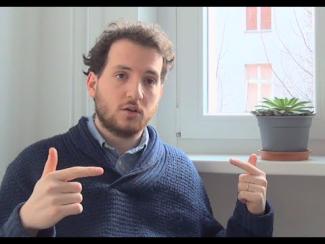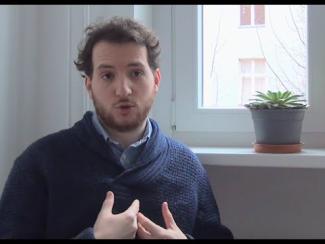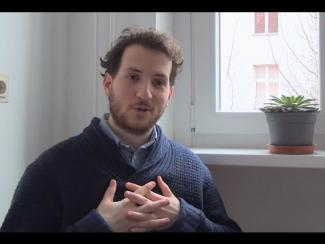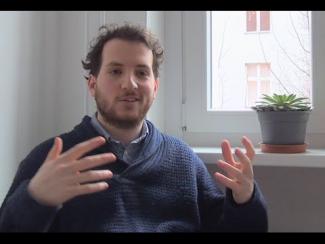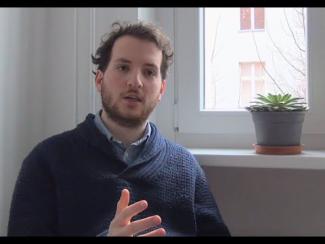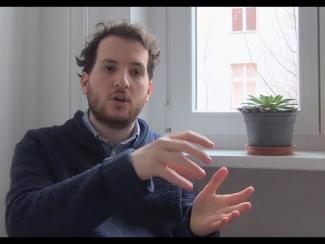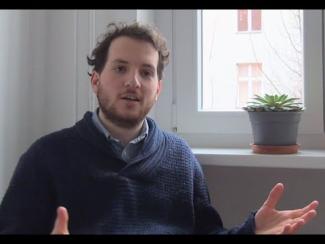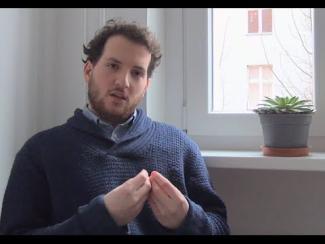The Yiddish Book Center's
Wexler Oral History Project
A growing collection of in-depth interviews with people of all ages and backgrounds, whose stories about the legacy and changing nature of Yiddish language and culture offer a rich and complex chronicle of Jewish identity.
Tal Hever-Chybowski's Oral History
Tal Hever-Chybowski, director of the Paris Yiddish Center Medem Library, was interviewed by Allie Brudney on February 8, 2014 in Berlin, Germany. Tal father's parents, both from Żywiec, Poland, survived the war in Russia and met in Israel. The side of his mother's family that he knew best left Ukraine following the Symon Petliura pogroms and emigrated to Palestine. Tal talks about how his parents decided to leave behind the Diaspora name "Chybowski" and replace it with the Hebrew name "Hever." As an adult, Tal began to reconsider his identity and his relationship to his Eastern European roots and decided to reclaim his original name. Tal's parents divorced when he was very young. He remembers his family poking fun at the Passover seder by bringing bread along with the matzo. Now he sees the importance of transmitting the Passover story from one generation to the next. Tal describes his family's discomfort with their diaspora status; they never talked about where they had come from. His neighborhood in Jerusalem, after the expulsion of the Arabs, was comprised of rich and poor, Sephardim and Ashkenazim. There was polarization, tension, and violence. He contrasts the number of soldiers and police in Jerusalem compared to Berlin. Tal now lives in Neukolin, Berlin, after a period of traveling and considering no place to be "home." His neighborhood is comprised of Turkish and Middle Eastern immigrants. He teaches Yiddish in a café and a bookstore and is trying to build a Yiddish community. Tal has become much more aware of his Jewish—as opposed to Israeli—identity since moving to Berlin. Experiences with both antisemitism and philo-Semitism significantly affected him. Tal considers how a language influences how a speaker formulates and articulates his thoughts. He began learning Yiddish to translate his great-grandfather's Yizkor book. Next, he subscribed to the "Forverts", participated in the immersive Vilnius summer program, and spent time in Paris where he took courses at the Medem Library. He extols the talents of Yitskhok Niborski, his mentor, whom he considers the most important Yiddish lexicographer working today. Asked about the Yiddish scene in Berlin, Tal says that he has not yet found people interested in the intellectual approach to reading Yiddish texts that excites him. Tal talks about some of the challenges of learning and teaching Yiddish: it is important to be humble. Tal sees German students having difficulty learning a new alphabet but see how helpful their knowledge of German is. Tal also present papers with Yiddish themes at conferences. He likes teaching outside of the academic setting which he sees as tied up with power and money. He believes that the whole concept of living versus dying languages needs to be reevaluated; the notion of "revival" assumes that a language has died. Tal's advice to students of Yiddish is to also study the languages with which Yiddish came in contact.
This interview was conducted in English.
Tal Hever-Chybowski was born in Oakland, California in 1986.

